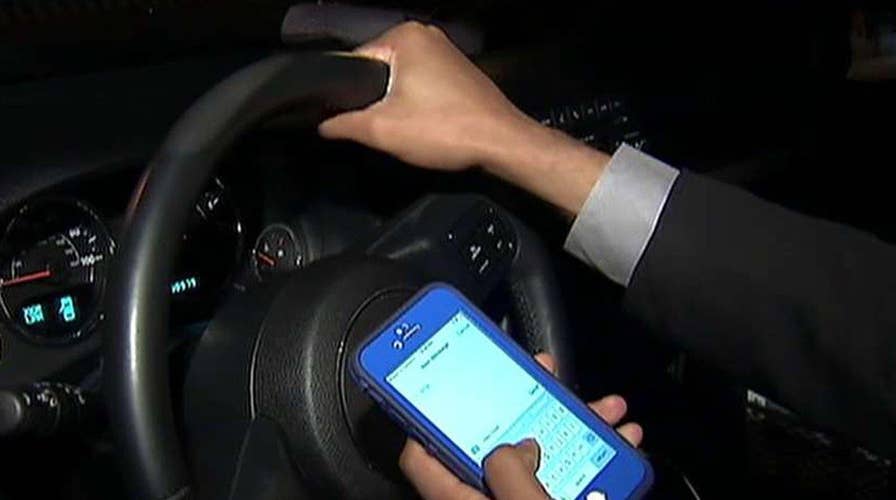Proposed bill would test cellphones after car accidents
Test would see if the driver was using the phone at the time of the crash
‘Textalyzer’ phone scanners that tell cops whether drivers were texting at the time of an accident could be deployed in New York state if proposed legislation passes. However, the scanners, which would harness mobile forensic technology, have already attracted fierce criticism from civil liberties activists.
Similar in concept to a ‘breathalyzer’ used to catch drunk drivers, the ‘textalyzer’ would let cops examine phones at accident sites for evidence of distracted driving. If implemented, the technology would be the first of its type used by police in the U.S.
Developed with New York state law enforcement, the scanners would not access drivers’ personal data, according to the bill’s supporters.
Related: FBI reportedly using forensic firm Cellebrite to open San Bernardino shooter's iPhone
Nonetheless, the New York Civil Liberties Union has slammed the bill, which it says poses a host of challenges.
“Distracted driving is a serious public safety concern, but this bill is ill-conceived and misguided, and fraught with legal and practical problems,” said NYCLU Executive Director Donna Lieberman, in a statement. “This proposal appears likely to impute suspicion and guilt for a wide range of lawful activity, and to invite cops to seize phones without justification or a warrant. There are existing legal channels for law enforcement to access a phone or phone records if they have grounds to suspect distracted driving has occurred, rather than field-testing every fender bender.”
Although the New York ‘textalyzer’ is still at the concept phase, similar technologies are already available to police. Israeli firm Cellebrite, which was rumored to have helped the FBI unlock the San Bernardino shooter’s iPhone, offers mobile forensic products that can unlock data from smartphones.
Related: FBI breaks into San Bernardino gunman’s phone without Apple’s help, ending court case
Cellebrite’s UFED Field Series technology was introduced in 2015 and can extract and decode a wide range of mobile device data such as call logs, contacts, calendar, media files and text messages. The technology focuses specifically on a mobile device, and does not need to harness network information from the likes of cell towers.
The company says that, even while its technology is extracting specific information, it can maintain the privacy of other data stored on a device.
Cellebrite has already voiced its support for advocacy group Distracted Operators Risk Casualties (DORCs), which worked closely on the bipartisan bill with New York State Senator Terrence Murphy (R) and Assembly Assistant Speaker Felix Ortiz (D). "We look forward to supporting DORCs and law enforcement—both in New York and nationally—to curb distracted driving,” said Cellebrite CEO Jim Grady, in a press release put out by DORCs.
Related: Apple still doesn't know how FBI hacked San Bernardino terrorist's iPhone without their help
DORCs co-founder Ben Lieberman has been a staunch advocate against distracted driving since his 19-year-old son Evan was killed in a 2011 collision caused by a distracted driver.
Lieberman told FoxNews.com that he wants to see much greater accountability for distracted driving. “Once people were held accountable for drunk driving, that’s when the situation improved,” he said. “We have got to address the problem of distracted driving and the place to address the problem of distracted driving is where accidents happen.”
‘Textalyzer’ technology should not be seen as an attack on people’s privacy, he added. “I respect the Fourth Amendment – I look on it as one of the pillars of our country, but I also look on driving safely on the road as one of the pillars of our country – it’s something that we have to balance.”
Related: FBI reportedly paid hackers for tool that
cracked San Bernardino gunman's iPhone
The bill is currently in committee stage, although Ortiz is hopeful that it will pass before the state legislature breaks for summer on June 20.
Follow James Rogers on Twitter @jamesjrogers









































